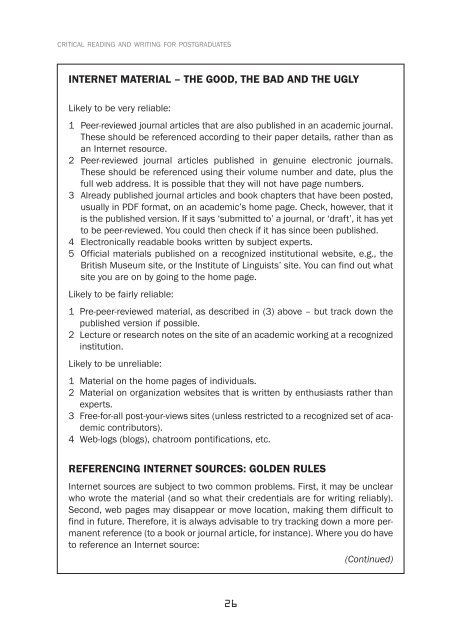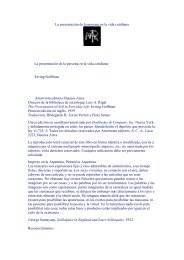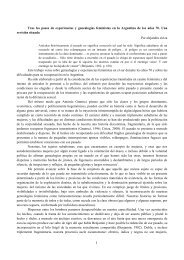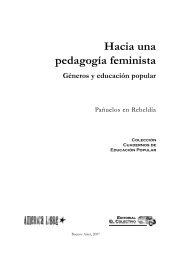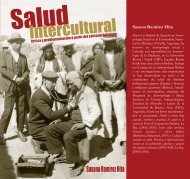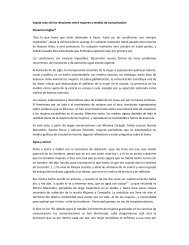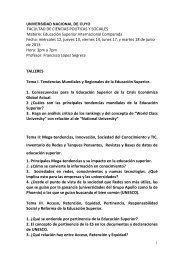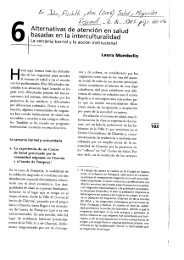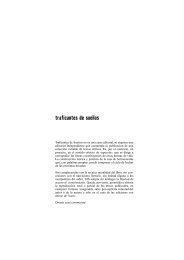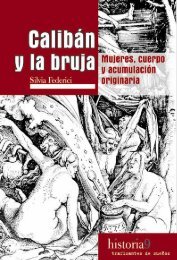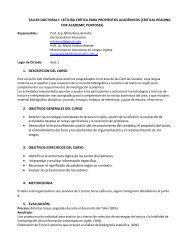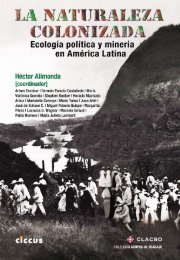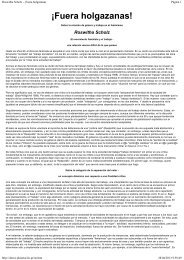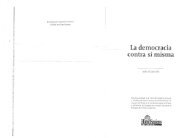Critical Reading and Writing for Postgraduates - Doctorado en ...
Critical Reading and Writing for Postgraduates - Doctorado en ...
Critical Reading and Writing for Postgraduates - Doctorado en ...
You also want an ePaper? Increase the reach of your titles
YUMPU automatically turns print PDFs into web optimized ePapers that Google loves.
critical reading <strong>and</strong> writing <strong>for</strong> postgraduates<br />
INTERNET MATERIAL – THE GOOD, THE BAD AND THE UGLY<br />
Likely to be very reliable:<br />
1 Peer-reviewed journal articles that are also published in an academic journal.<br />
These should be refer<strong>en</strong>ced according to their paper details, rather than as<br />
an Internet resource.<br />
2 Peer-reviewed journal articles published in g<strong>en</strong>uine electronic journals.<br />
These should be refer<strong>en</strong>ced using their volume number <strong>and</strong> date, plus the<br />
full web address. It is possible that they will not have page numbers.<br />
3 Already published journal articles <strong>and</strong> book chapters that have be<strong>en</strong> posted,<br />
usually in PDF <strong>for</strong>mat, on an academic’s home page. Check, however, that it<br />
is the published version. If it says ‘submitted to’ a journal, or ‘draft’, it has yet<br />
to be peer-reviewed. You could th<strong>en</strong> check if it has since be<strong>en</strong> published.<br />
4 Electronically readable books writt<strong>en</strong> by subject experts.<br />
5 Official materials published on a recognized institutional website, e.g., the<br />
British Museum site, or the Institute of Linguists’ site. You can find out what<br />
site you are on by going to the home page.<br />
Likely to be fairly reliable:<br />
1 Pre-peer-reviewed material, as described in (3) above – but track down the<br />
published version if possible.<br />
2 Lecture or research notes on the site of an academic working at a recognized<br />
institution.<br />
Likely to be unreliable:<br />
1 Material on the home pages of individuals.<br />
2 Material on organization websites that is writt<strong>en</strong> by <strong>en</strong>thusiasts rather than<br />
experts.<br />
3 Free-<strong>for</strong>-all post-your-views sites (unless restricted to a recognized set of academic<br />
contributors).<br />
4 Web-logs (blogs), chatroom pontifications, etc.<br />
REFERENCING INTERNET SOURCES: GOLDEN RULES<br />
Internet sources are subject to two common problems. First, it may be unclear<br />
who wrote the material (<strong>and</strong> so what their cred<strong>en</strong>tials are <strong>for</strong> writing reliably).<br />
Second, web pages may disappear or move location, making them difficult to<br />
find in future. There<strong>for</strong>e, it is always advisable to try tracking down a more perman<strong>en</strong>t<br />
refer<strong>en</strong>ce (to a book or journal article, <strong>for</strong> instance). Where you do have<br />
to refer<strong>en</strong>ce an Internet source:<br />
(Continued)<br />
26


